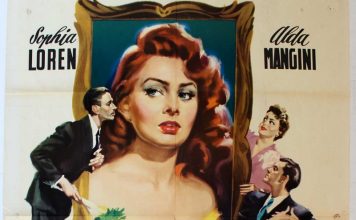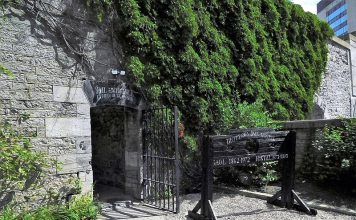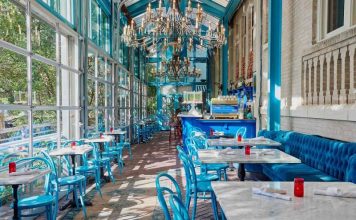Dijon, a captivating city nestled in the heart of Burgundy, France, stands as a living testament to the past, present, and future. Its fame resonates not only from its historical significance but also from its vibrant cultural scene and culinary wonders. With an intricate tapestry woven from centuries of history, architectural splendor, and tantalizing flavors, Dijon beckons travelers to immerse themselves in its unparalleled charm.
What is Dijon Known For?
Dijon’s name is synonymous with one of the world’s most beloved condiments: mustard. The “Dijon mustard” has transcended borders, infusing dishes worldwide with its distinctive flavor. However, the city’s allure extends far beyond its culinary contributions. The Palace of the Dukes of Burgundy, a masterpiece of Gothic and Renaissance architecture, stands as a testament to Dijon’s historical grandeur. As you explore the city’s cobbled streets, graceful squares, and captivating museums, you’ll uncover layers of history, each contributing to Dijon’s multifaceted identity.
Famous People from Dijon
Dijon’s legacy of greatness is not confined to its architecture and cuisine; it also boasts a lineage of remarkable individuals who have shaped the course of history. Among them is Gustave Eiffel, the visionary engineer whose creation, the Eiffel Tower, is an enduring symbol of innovation and human achievement. Born in Dijon, Eiffel’s legacy underscores the city’s role as a cradle of brilliance, nurturing minds that leave an indelible mark on the world.
Famous Sports in Dijon
Sports culture thrives in Dijon, with a particular emphasis on motorsports that revs up the excitement. The Circuit Dijon-Prenois, a renowned racetrack, has witnessed the roar of engines and the thrill of competition. Dijon’s commitment to sports is not limited to the racetrack; the city boasts facilities that cater to a diverse range of activities, encouraging locals and visitors alike to embrace an active lifestyle.
Famous Streets in Dijon
Dijon’s streets encapsulate its evolution through time, revealing stories of the past and the dynamism of the present. As you traverse the Rue de la Liberté, a bustling pedestrian avenue, you’ll encounter a lively blend of shops, cafes, and the rhythmic pulse of modern life. Meanwhile, the serene Rue des Forges beckons with its medieval ambiance, adorned with timber-framed houses and charming boutiques. These streets serve as pathways to the heart and soul of Dijon, each offering a unique perspective on the city’s journey through history.
FAQs about Dijon
When is the best time to visit Dijon? Dijon is best experienced during the spring months of April to June, when the weather is comfortably mild, and the city’s outdoor attractions are in full bloom. Summer, from July to August, is also an excellent time to explore its cultural and historical wonders.
What is Dijon renowned for historically and culturally? Dijon’s name echoes its rich history and diverse cultural offerings. Its legacy is entwined with the creation of the world-famous Dijon mustard, which continues to tantalize taste buds worldwide. The city’s architectural wonders, such as the Palace of the Dukes of Burgundy, evoke its historical grandeur, while its vibrant museums and galleries reflect its contemporary cultural scene.
Who are some notable figures associated with Dijon? Dijon has been the birthplace of remarkable individuals who have left an indelible mark on the world. One such luminary is Gustave Eiffel, the brilliant engineer behind the iconic Eiffel Tower. His legacy serves as a testament to Dijon’s role in nurturing innovation and inspiring greatness across various domains.
What sports thrive in Dijon? Dijon’s sports culture is notably influenced by motorsports, with the Circuit Dijon-Prenois showcasing high-speed action. The city’s commitment to an active lifestyle extends beyond the racetrack, offering facilities for a variety of sports and encouraging residents and visitors to stay active.
Which streets contribute to Dijon’s charm? Dijon’s streets are a journey through time and culture. Stroll along the bustling Rue de la Liberté to experience modern life, with its shops and cafes creating a vibrant atmosphere. For a taste of history, explore the medieval ambiance of Rue des Forges, where charming timber-framed houses and quaint boutiques beckon.
See more Famous Places in France:
- What is Paris Famous For?
- What is Marseille Famous For?
- What is Lyon Famous For?
- What is Toulouse Famous For?
- What is Nice Famous For?
- What is Nantes Famous For?
- What is Strasbourg Famous For?
- What is Montpellier Famous For?
- What is Bordeaux Famous For?
- What is Lille Famous For?
- What is Rennes Famous For?
- What is Reims Famous For?
- What is Le Havre Famous For?
- What is Cergy-Pontoise Famous For?
- What is Saint-Etienne Famous For?
- What is Toulon Famous For?
- What is Angers Famous For?
- What is Grenoble Famous For?
- What is Dijon Famous For?
- What is Nimes Famous For?














